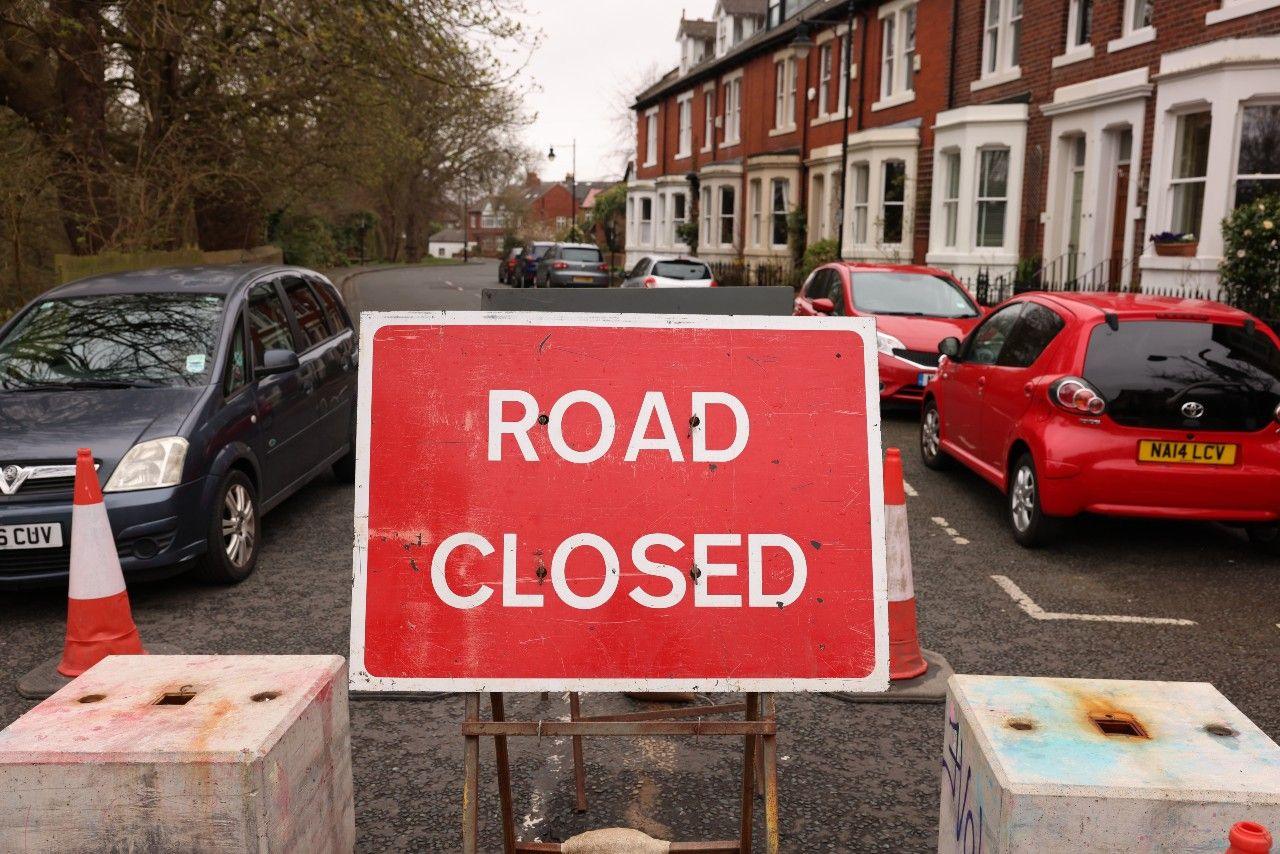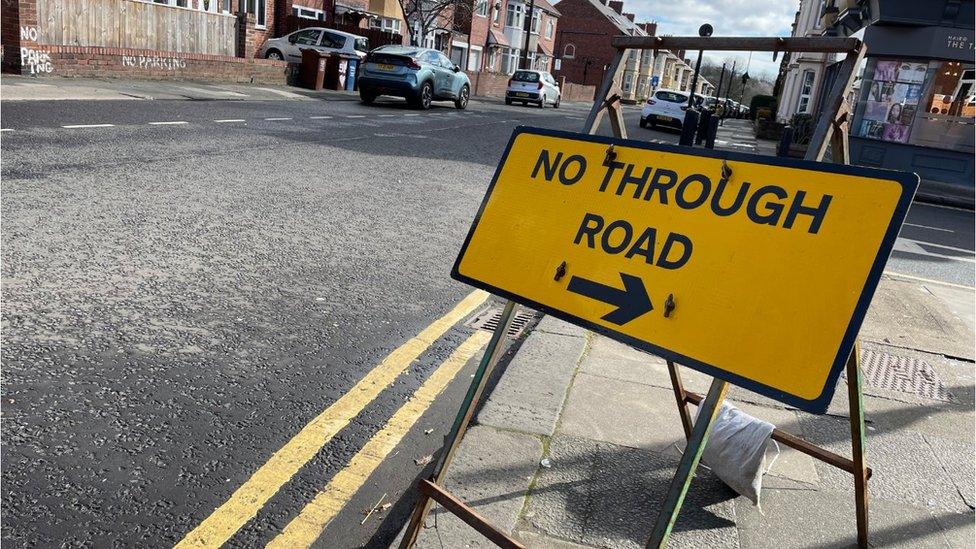Low traffic neighbourhood to be axed

The Jesmond LTN trial had been due to run until September
- Published
A low traffic neighbourhood (LTN) in Newcastle is to be ended early after a public consultation revealed large opposition.
Bollards were installed in Jesmond in March last year, blocking traffic on some streets between Cradlewell and Osborne Road.
The trial was due to last until September, but many of the traffic reduction measures are to be removed on Monday.
Newcastle City Council, external said it was “clear” the LTN - originally created to make areas safer and less polluted - had not worked for everyone.
Closures had been in place on Manor House Road and its junctions with Osborne Avenue, Shortridge Terrace, Buston Terrace, Cavendish Terrace, as well as on Jesmond Dene Road and Akenside Terrace.
These will be removed, but restrictions to stop vehicles creating rat-runs will be made permanent.
Drivers will continue to be banned from turning into Beatty Avenue off Matthew Bank, which the council says has created an “improved pedestrian environment” and prompted no concerns from emergency services.
'We're elated'
The consultation on whether to make the LTN permanent showed 77% against, while a petition of almost 5,000 signatures also called for its removal, the Local Democracy Reporting Service said.
Labour councillor Marion Williams, who is responsible for transport, said the LTN "achieved many of it's objectives", but it needed to "work for local people" which "some aspects of the scheme have failed to do".
She added: "There are lessons to be learnt from this pilot, including how we can better engage residents when designing future schemes."
Supporters of LTNs believe they help make streets cleaner and more attractive, but critics like resident's group OneJesmond, external claim they can create more congestion on surrounding roads and harm local businesses.
Group member Gill Reeve, who owns a sandwich bar, said her business suffered a "drastic drop in trade" when the scheme began.
Responding to news of its reversal, she said: “We’re elated. We’re celebrating.”
OneJesmond is now urging the council to “properly consult local people on practical, positive steps to encourage walking and cycling in the area”.
'Polarised feedback'
Heather Lambert, a retired paediatrician from Newcastle and clean air campaigner from the group Ride for their Lives said she was “devastated” by the decision.
“The factual data about how many people are walking or cycling, and what the traffic levels were, is very much in favour keeping [the LTN].
"The thing it appears the council have made the decision on is the very polarised feedback rather than the data.”
Meanwhile, Northumbria Police raised concerns about the LTN, with data showing response times to serious incidents in the area had increased in the months after the bollards were installed.
However, on Wednesday the council claimed police, fire and ambulance services “all said their response times were unaffected” by the LTN.
Councillor Williams added: “We worked closely with our emergency service partners throughout the consultation period and they closely monitored response data.
"Data shows their response times were unaffected and no road traffic collisions took place that could be attributed to the pilot.”
Follow BBC North East on X (formerly Twitter), external, Facebook, external and Instagram, external. Send your story ideas to northeastandcumbria@bbc.co.uk
- Published10 September 2023
